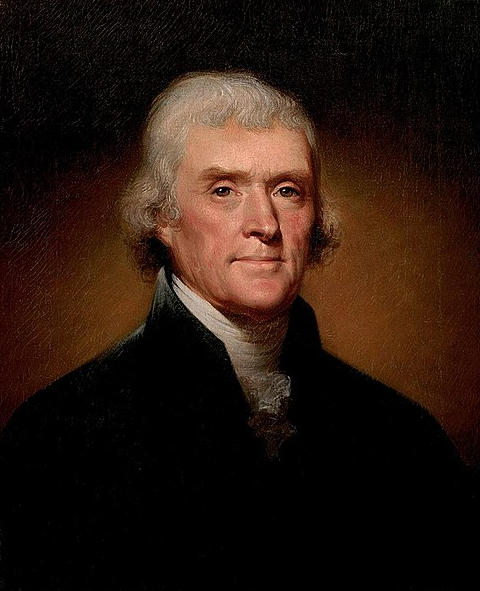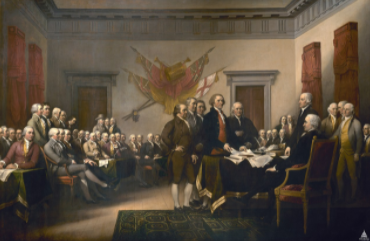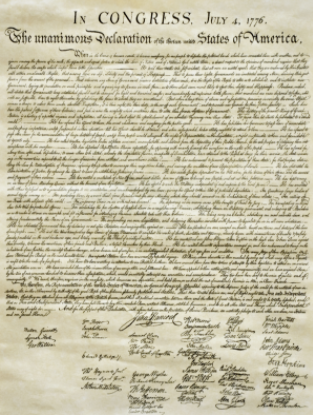
Portrait of Thomas Jefferson, 1800, Wikipedia
Declaration of Independence: The Beginning of Freedom
After pressure, protests, fights, debates, and diplomacy, the Declaration of Independence was drafted and ready to be approved and published. On July 1, 1776, Congress met again and began examining Jefferson’s text. The next day, Congress officially adopted a resolution calling for the colonies to become independent of Britain. The body continued editing the document and had the Declaration printed and approved on July 4, 1776, although it was officially signed on August 2, 1776.

Portrait of Thomas Jefferson, 1800, Wikipedia

June 28, 1776, when the first draft of the Declaration of Independence was presented to the Second Continental Congress, Neutron Bytes
" ...Finally, on July 4, Congress formally adopted and publicly revealed the Declaration of Independence. The act marked the birth of the independent United States.” (Gale Middle School) Written with care and perspective, liberty and justice as motivation, strong argument, and the people in mind, it’s no wonder this legendary paper moved the entire country.

Declaration of Independence, 1776, aspen institute.
The Declaration of Independence represented the 13 American colonies severing their political bonds with Great Britain. The writing in the Declaration depicted the unfair treatment they were receiving and why they were breaking away. According to the Declaration’s principal author, Thomas Jefferson, the Declaration was intended to be a “model of political argument.”
“He [the present King of Great Britain] has refused his Assent to Laws, the most wholesome and necessary for the public good… He has kept among us, in times of peace, Standing Armies without the Consent of our legislatures.”
"...we sink in the struggle, we do but remain the wretched people we should have been without this declaration. Our hearts are full, our hands are full; may God, in whom we trust, support us. "
~ Robert Treat Pain
On its 50th anniversary, Jefferson wrote that the primary goal of the Declaration was “[n]ot to find out new principles, or new arguments, never before thought of, not merely to say things which had never been said before; but to place before mankind the common sense of the subject, in terms so plain and firm as to command their assent, and to justify ourselves in the independent stand we are compelled to take.” Jefferson’s objective, according to the quote, wasn’t to establish new opinions or describe new ideas, but to strengthen what was already there in the people, to restate common knowledge so the public could relate, to rile up the crowd, and gain their full support in the cause.